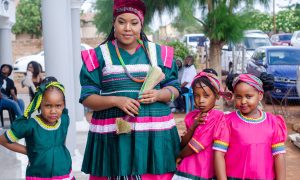
Complete success for the 4-day week in South Africa: 90% of companies want to keep it
South Africa has become the latest in a long list of 4-day week trialists. Here, the test run was a complete success. Not only the employees, but also over 90% of participating companies want to keep the reduced working hours with the same pay. This is in line with the global trend. However, one small detail distinguishes the African country from previous tests – very few South Africans want to have Fridays off.
The test of the 4-day week in South Africa has been running since 1 March 2023. 28 South African companies and one company from Botswana took part. Most of them are in the IT, finance and recruitment sectors. But how exactly does a study like this work?
Essentially, employees only work four days a week instead of five, do the same work and receive the same salary. Unlike in most previous trials, each employee in the 29 companies was allowed to choose their own day off.
As in the previous tests, the results are consistently positive, both for the employees and for the companies.
RESULTS: LESS STRESS & BURNOUT AND MORE JOB SATISFACTION
After around six months, the first results are now available. These are similar to the results of trials already carried out in other countries. The employees report that they were:
– less stressed
– sick less often
– enjoyed going to work more than before the trial
The mood of trialists had also improved at home as a result of the reduction in working hours. The frustration and stress normally induced by a long week were not taken home from work.
The participating companies are also satisfied, as productivity has remained the same. In the long term, it could even increase as a result. This is because staff turnover fell during the test phase, i.e. fewer employees left the company during this time. This means that the company’s expertise and experience is retained.
Around 92% of the participating companies plan to retain the 4-day week. However, there is one peculiarity that distinguishes South Africa from fellow trialists. While employees in other countries mostly want Fridays off, it is not so clear in South Africa. Only around a quarter of them took Fridays off.
TEST OF THE 4-DAY WEEK IN SOUTH AFRICA IS PART OF A GLOBAL SERIES OF EXPERIMENTS
The study is part of a whole series of tests being carried out by the non-profit organisation “4 Day Week Global”. It has already been successfully implemented in several countries around the world, including Australia, Spain, Japan, the UK and Iceland. The results have been consistently positive.
Iceland is one of the first countries to de facto introduce the 4-day week following a successful test. The reduction in working hours is already a reality for almost 80% of Icelanders.
THE 4-DAY WEEK IN AUSTRIA?
In contrast to South Africa, a 4-day week test has yet to be carried out in Austria. Nevertheless, there are already some companies that have switched to the 4-day week on their own. For example, the Upper Austrian IT company Tractive. A detailed list of companies that have already opted for shorter working hours in Austria can be found here:
This work is licensed under the Creative Common License. It can be republished for free, either translated or in the original language. In both cases, please cite Kontrast.at / Ingo Geiger as the original source/author and set a link to this article on Scoop.me. https://thebetter.news/4-day-week-south-africa/
The rights to the content remain with the original publisher. Läs mer…
